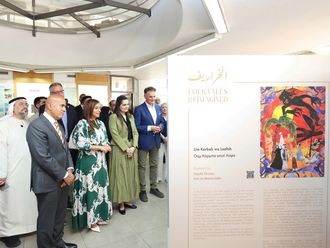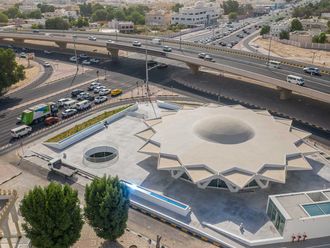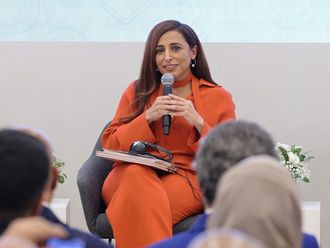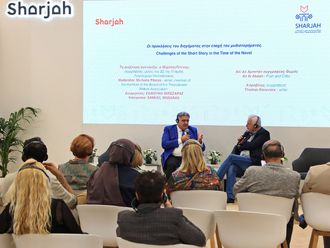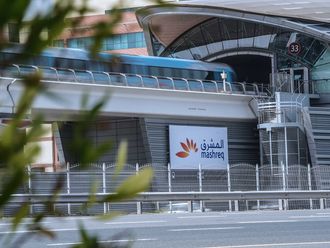The Abu Dhabi Islamic Bank (ADIB) is among the few Islamic banks that are innovative and keep abreast of the marked surge in demand for Islamic products. And now with a new senior vice-president for treasury and investment banking in Michael Ian Carter, the bank seems headed for better times.
Buoyed by the response to the investment funds it launched this year, ADIB plans a series of new funds under an umbrella fund. "The bank is working on some new funds for its customers and depending on market circumstances they will be launched," Carter said.
One of them will be the ADIB Ijara 1 fund, a low-risk, investment-grade fund. The retail market is crying for good alternatives to conventional banking and there is an enormous demand for Islamic banking, he added.
"This is the area where growth will come from. Indeed, there will be an acceleration from conventional banking to Islamic banking in the retail market," he said. Although the market for retail Islamic banking is growing at 15 per cent per annum, ADIB is growing faster.
The bank has not only expanded its branch network, it has also expanded its product line. And although figures have yet to be made public, the bank's financial performance this year is far better than last year.
Carter noted that ADIB's funds, notably the ADIB Al Hillal Fund and the Ijara Fund, are performing well, providing yields in excess of other conventional Sharia-compliant products. As the first active Islamic asset allocation fund, the ADIB Al Hillal Fund offers investors both current income and capital growth while diversifying risk over three distinct asset classes, namely global equities, medium-term financing and short-term financing.
"All our funds are geared towards the lower end of the risk spectrum, are cost-effective and provide investors attractive long-term returns," he said. Many governments in the Gulf prefer to invest their surpluses in an Islamic way. Moreover, government financing will also be run in a Sharia-compliant way. "This is yet another avenue of support for Islamic banking," he said.
Carter believes that there will be innovative Islamic-compliant instruments such as long-term securitised Ijara certificates that will give Islamic investors an alternative to the conventional bond market.
"The coming years will see a considerable increase in alternative products that can be offered to retail institutional clients as well," he said. Commenting on competition among Islamic banks, he said there is just one more Islamic bank in the UAE and very little cross-border competition.
"We compete with the conventional banks and our principal competitors are foreign banks which have Islamic windows. All our strategies are geared towards this." As a relatively young business sector, the $150-billion Islamic banking market faces not only competition from the conventional banking system but also some new challenges.
However, Carter believes that Islamic banking by its nature enjoys certain advantages. "One of the main challenges for us is to maximise returns to our shareholders and depositors in a Sharia-compliant way," he said.
Accordingly, the bank has not only to be innovative and constantly introduce Sharia-compliant products to meet the needs of retail and institutional clients, but also manage the bank's liquidity in the right manner by deploying it in Sharia-compliant ways.
With nearly 25 years in the banking profession, Carter comes to ADIB after working in various banks in the UK, Middle East and Far East. His last assignment was with Jordan International Bank, a UK incorporated consortium bank from 1996-2000 as general manager.
Prior to that he was with the Arab Banking Corp (ABC) as chief executive officer of the investment banking subsidiary.
Michael Ian Carter - Senior vice-president for treasury and investment, Abu Dhabi Islamic Bank
The Abu Dhabi Islamic Bank (ADIB) is among the few Islamic banks that are innovative and keep abreast of the marked surge in demand for Islamic products. And now with a new senior vice-president for treasury and investment banking in Michael Ian Carter, the bank seems headed for better times.


